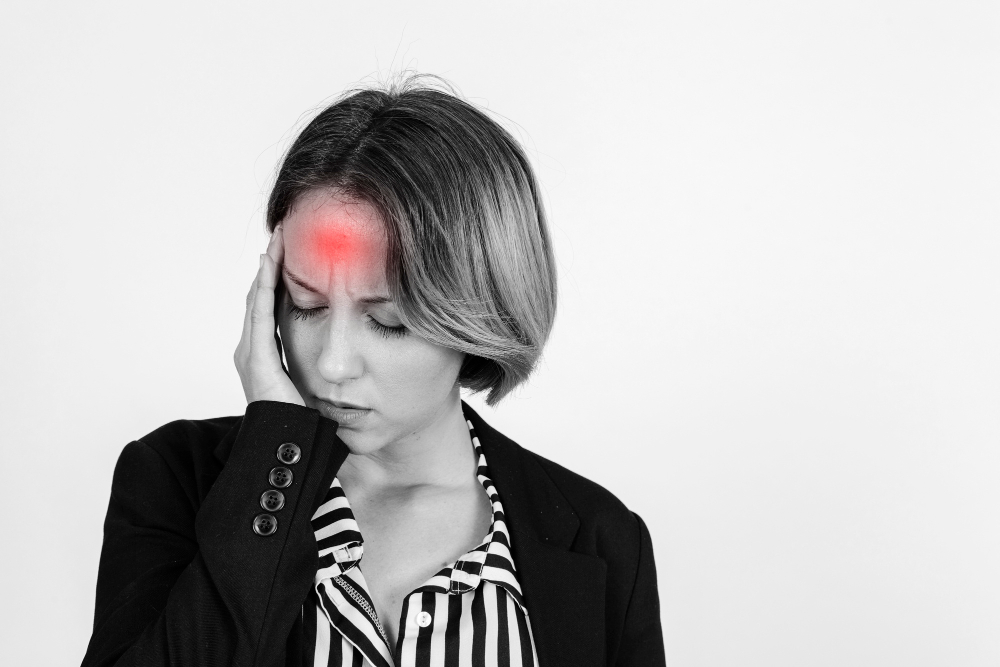Migraine & Headache

Migraine
Migraines are intense, recurring headaches often accompanied by other symptoms. They can significantly impact daily life and are characterized by:
- Severe Pain: Typically on one side of the head, described as throbbing or pulsating.
- Associated Symptoms: Nausea, vomiting, sensitivity to light (photophobia), and sensitivity to sound (phonophobia).
- Aura: Some individuals experience visual disturbances or other sensory symptoms before the headache starts.
Triggers and Causes:
- Hormonal Changes: Menstrual cycles, pregnancy, and menopause can trigger migraines.
- Dietary Factors: Certain foods and beverages, like caffeine, alcohol, and aged cheeses.
- Environmental Factors: Bright lights, strong smells, or changes in weather.
- Stress: Emotional or physical stress can be a trigger.
Treatment and Management:
- Medications: Pain relievers (NSAIDs, acetaminophen), triptans, and preventive medications (beta-blockers, antidepressants).
- Lifestyle Adjustments: Regular sleep patterns, balanced diet, and stress management techniques.
- Avoiding Triggers: Identifying and avoiding personal migraine triggers through a diary or tracking app.
- Alternative Therapies: Acupuncture, biofeedback, and relaxation techniques.
Headache
Headaches are a common condition with varying types and causes, including:
- Tension Headaches: Characterized by a dull, aching pain or pressure around the head, often linked to stress or muscle tension.
- Cluster Headaches: Severe, one-sided pain occurring in clusters or cycles, often accompanied by eye redness or tearing.
- Sinus Headaches: Pain and pressure around the forehead, cheeks, and eyes, often related to sinus infections or inflammation.
Treatment and Management:
- Medications: Over-the-counter pain relievers (ibuprofen, aspirin) for mild headaches, and specific treatments for different types of headaches.
- Lifestyle Modifications: Managing stress, staying hydrated, and regular exercise.
- Identifying Triggers: Recognizing and avoiding triggers such as specific foods, lack of sleep, or dehydration.
- Medical Evaluation: For persistent or severe headaches, consult a healthcare provider to rule out underlying conditions and receive appropriate treatment.
